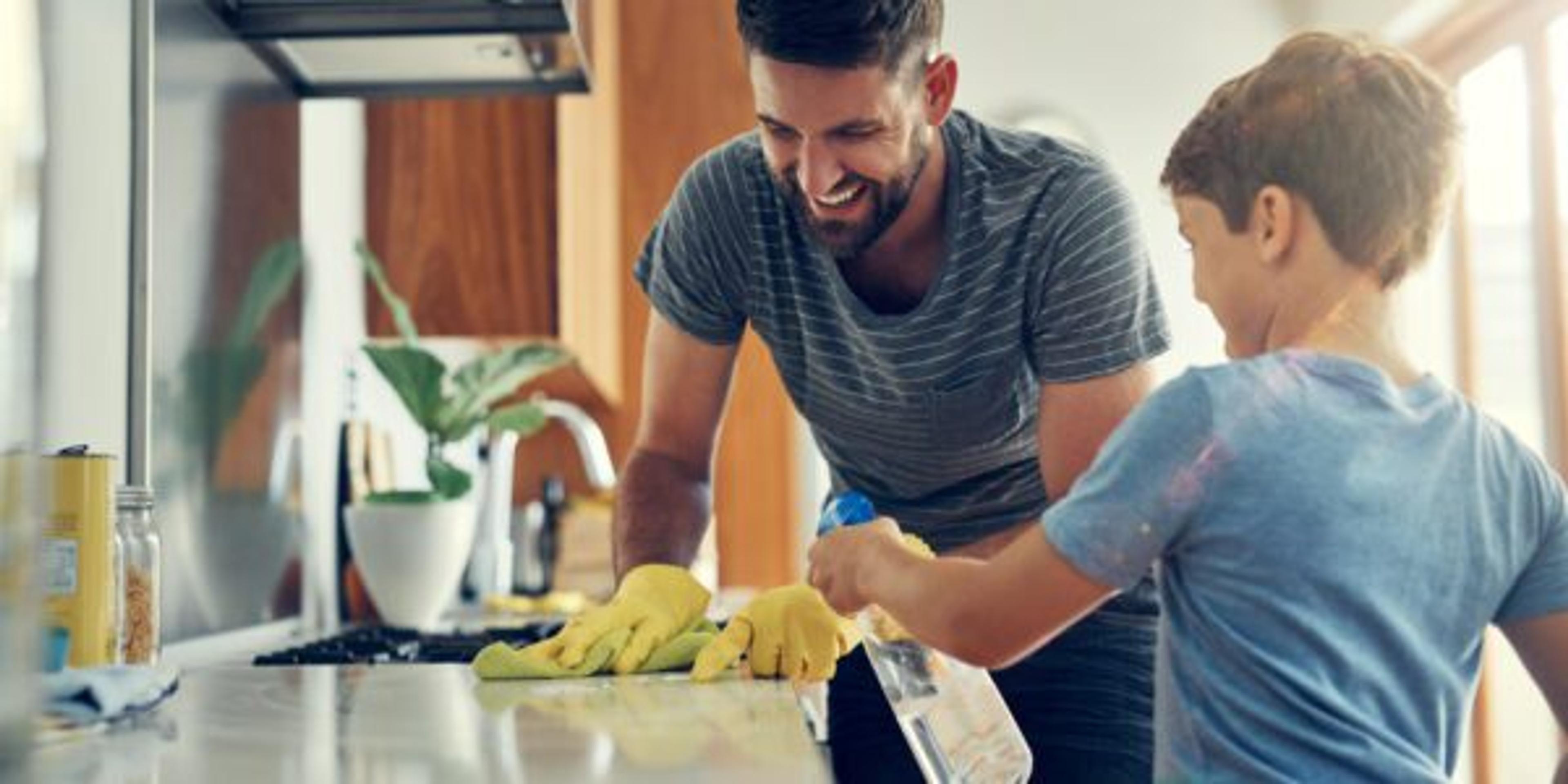Mental Health Benefits of Spring Cleaning

Dr. Kristyn Gregory
| 3 min read

Clutter and disorganization can have damaging effects on the body and mind. Clutter can cause distractions, limit focus and pose physical hazards.
On the other hand, a clean and organized space can help individuals feel a sense of control and lend continuity to their day-to-day routines. There’s an overall peace of mind that comes with living in an aesthetically pleasing space.
Cluttered, disorganized living can restrict a person’s ability to focus and process information. Studies show that it’s more difficult for a person to stay focused in a chaotic environment compared to an organized space. This is because in a cluttered space, multiple objects are fighting for the brain’s attention.
Mental health benefits of decluttering
Removing clutter can have a positive impact on a person’s mood and mental health. Benefits – in addition to improved focus – include:
- A sense of accomplishment: When a task is accomplished and, in the case of clutter, a burden has been lifted, tension is reduced and we feel satisfaction.
- A sense of control: When areas of our lives are out of our control, perhaps at work or as it pertains to the health of a loved one, cleaning and decluttering can restore a sense of control.
- Better relationships: Instead of enjoying a living space with a significant other, family member or roommate, one person’s clutter and untidy habits can lead to conflict.
- Reduced stress and higher self-esteem: Improving a living space can make one feel better about themselves. A clean home may also make a person feel more inclined to invite guests over, which can combat feelings of isolation and loneliness.
Physical health benefits of decluttering
- Additional movement during the day: NEAT (non-exercise activity thermogenesis) exercises are known as the active movements in our day that don’t rise to the level of sustained physical effort achieved while working out. Cleaning qualifies as NEAT exercise and can be a sneaky way to lose weight – or at least protect against weight gain – especially for those who live a sedentary lifestyle.
- Lower risk of asthma and allergies: A cluttered space often collects dust mites and pet dander. These allergens can trigger mild to severe allergic symptoms and can be responsible for asthma attacks. Dusting and vacuuming can help prevent those symptoms, and help a person avoid sneezing, watery eyes and a runny nose.
- Lower risk of slip and fall accidents: Accidental injuries are less likely when the floor is clear of stray objects. Dangerous clutter can be particularly harmful to older adults. Falls among adults 65 and older caused over 36,000 deaths in 2020, making it the leading cause of injury death for that group, according to the Centers for Disease Control and Prevention (CDC).
Cleaning and decluttering tips
Some people are more attached to their items than others, meaning one person’s approach to decluttering may be different than the next. Here are some tips:
- The “five things tidying” approach: Coined by professional counselor and TikTok personality KC Davis, this approach narrows down five “things” in every room: trash, dishes, laundry, things with a place and things without a place. Try focusing on one of these “things” at a time.
- Start small: Pick one cabinet, desk, or corner of the house to clean. Devote 10 or 15 minutes to it and stop when that time passes, to avoid feeling overwhelmed.
- The “hands-off approach”: Those who struggle with clutter may benefit from cleaning with a willing friend or family member. Over-attachment to personal items can make it hard to discard of unneeded items. Consider letting someone else sort through those items, ask if it’s OK to toss them, then throw them away.
Kristyn Gregory, D.O., is medical director of behavioral health at Blue Cross Blue Shield of Michigan. For more health tips and information, visit AHealthierMichigan.org.
Related:
Photo credit: Getty Images





